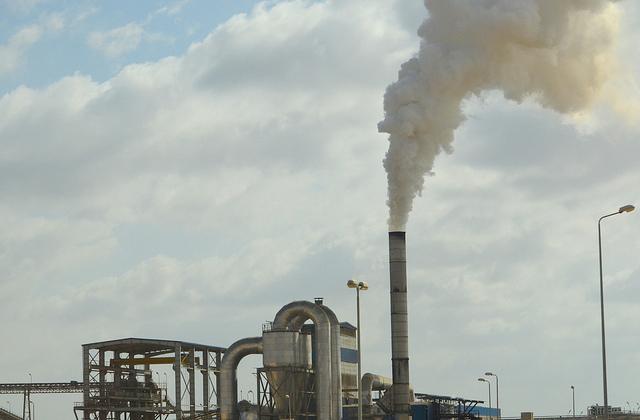Gov. Scott Walker’s announcement to prepare a lawsuit over carbon emissions regulations by The U.S. Environmental Protection Agency, unveiled during his 2015 State of the State address, has seen some criticism from experts in the field of public policy and environmental studies.
The original concern, expressed by Walker in his State of the State address, is the new regulations would put undue costs on industries, especially manufacturing, in southeastern Wisconsin.
EPA ozone regulations would benefit health, create concerns for industry in Southeastern Wisconsin
The Obama administration announced earlier this month it will delay publication of the final rule on carbon emissions from power plants until midsummer of 2015.
Keith Reopelle, senior policy director of Clean Wisconsin Inc., said many states will likely sue EPA over carbon pollution rules once they are finalized, but this is “strange timing” to start preparing a lawsuit. He said the lawsuit has to be on the final rule which is yet to be announced and unlikely to be similar to the proposed rule on which Walker is working at presently.
“The state has been critical in their comments on the proposed rules of EPA, but those are the proposed rules,” Reopelle said. “We don’t know what EPA is going to say in the final rule. So, to start preparing a lawsuit before the final rule is finalized is strange. It’s bizarre.”
Steve Hiniker, executive director of 1000 Friends of Wisconsin also said Walker’s reaction to the proposed rule by EPA on carbon emissions from power plants is strange as the final rule is not yet been published by EPA.
“It’s very odd and bizarre that he [Walker] is suing now because the rules haven’t been developed,” Hiniker said. “So it makes good political theatre, but there is nothing to sue yet that we are aware of.”
The biggest concern Walker has addressed on EPA’s proposed carbon emission guidelines, based on the report of Public Service Commision of Wisconsin, is the threshold of carbon emissions set by EPA for Wisconsin. It is 1,203 pound per megawatt-hour of total energy produced, 34 percent less than what it was in 2012, which would be a costly encounter for the manufacturers and thereby result in raising the electricity rate by 29 percent.
In his State of the State address, Walker said top-down regulations like those from the EPA would hurt Wisconsin manufacturers.
“Instead of fighting with states like Wisconsin, the federal government should work with us to find reasonable alternatives,” Walker said. “We can be both environmentally and economically sustainable.”
Gregory Nemet, an associate professor in the LaFollette School of Public Affairs at University of Wisconsin, wrote in an email to The Badger Herald he worries more about local air pollution and climate change than momentary rise in energy cost for Wisconsinites.
According to Nemet, there could still be costs imposed on Wisconsin energy users from these new rules, but citizens also must realize there are very real costs associated with climate change and local air pollution.
While Hiniker is critical of Walker’s approach to EPA’s proposed guidelines on climate change, Reopelle has expressed a different perspective about the concerns of Walker on EPA regulations.
Reopelle cited a bipartisan study which found 57 percent of Wisconsin voters approve the proposal requiring manufacturers to reduce greenhouse gases that causes global warming at the cost of higher utility bills that they need to pay for the changes.
Hiniker said either Walker should propose something to tackle the issue of climate change in Wisconsin if he doesn’t like EPA’s recommendations or consider how to incorporate it in the state policy despite the cost because climate change is an issue of utmost importance for future generations.
Wisconsin Manufacturers and Commerce did not respond for comment.


















